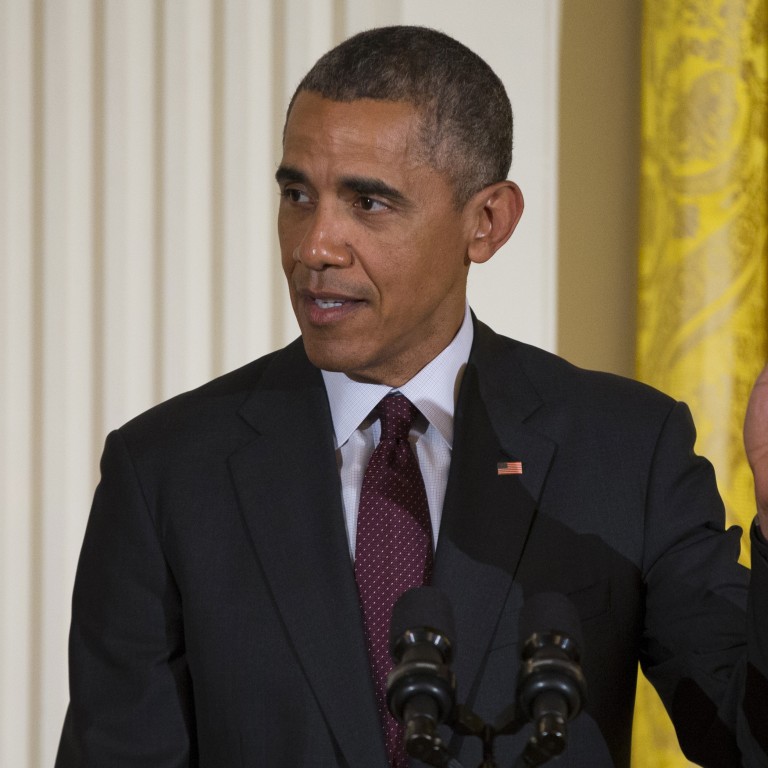
Obama’s long and winding road to a trade victory
The result has rescued President Obama from a legacy-shattering embarrassment, and the United States from an unequivocal retreat from global leadership
Baffling procedural manoeuvres in the US Congress over the last weeks have put trade politics back on the front pages. The immediate issue was whether President Barack Obama had the authority to complete negotiations with 11 other countries in the Americas and Asia on the TPP – the much touted Trans-Pacific Partnership trade agreement.
Without the grant of so-called Trade Promotion Authority (TPA) by Congress, US negotiators would not have been able to make the final push to close the deal. Not everything is done yet, and this now represents the last chance to align the stars and political calendars for a deal, at least for years to come.
TPA allows the Administration to present international trade agreements to the legislature for consideration on the basis of an up-or-down vote. No attachments, amendments or filibustering are permitted.
This legislative peculiarity, which used to be called fast track, was first introduced in 1974. It was designed to curb the pork-barrel proclivities of legislators inclined to pursue special interests on the back of less parochial priorities.
Tuesday’s narrowly won vote in the Senate was the penultimate drama in a confusing struggle in both branches of Congress to grant the authority. Only one vote remains and there is little doubt that TPA will go through this week and the legislation will be sent to the President for signature.
The result has rescued President Obama from a legacy-shattering embarrassment, and the United States from an unequivocal retreat from global leadership. Obama’s eleventh-hour reprieve was handed to him primarily as a result of Republican support.
This kind of cliff-edge rescue operation and brinkmanship is hardly reassuring, not least because of its reliance on patched-up fixes, procedural wrangling, and chance.
Approval of fast-track authority was far from guaranteed. Obama had left his legacy-shaping engagement on trade rather late – an issue that went largely ignored in his first Administration and into his second.
Negotiating authority is not just for the TPP. It would also serve for the Transatlantic Trade and Investment Partnership and any agreements associated with the Word Trade Organization requiring legislative action. These might include a Trade in Services Agreement, an agreement on trade in information technology, and a deal concluding the Doha Round of multilateral trade negotiations. In fact, it could be used for any agreement concluded before July 1, 2018.
What do we learn from all this? The good news is that despite the deep divisiveness and mistrust that dominate Washington politics, bipartisanship reappeared on an important issue. Republicans, including some but not all on the right of the Party, generally support trade agreements. The story is quite different in the Democrat camp.
Prominent in the left-leaning Democrats’ demonic hall of fame are trade agreements. They are considered a bespoke wrangle designed for corporate gain. In the name of profit, they squeeze wages, kill jobs, impoverish the nation, and trammel cherished social values. Regardless of how wrong-headed and partial these views seem to many in the mainstream, governments around the world have simply not taken them seriously enough.
The days when trade agreements were simply about reducing trade barriers have long gone. Deals today, especially outside the confines of the WTO, can cover labour and environmental issues, intellectual property, investment, human rights, and now alleged currency manipulation. They reach deep inside national frontiers and impinge upon a range of social concerns and preferences.
In the case of the United States, fast-tracked approval of such complex packages raises fears of sleight of hand, of the passage of crucial legislation that would never be agreed in stand-alone form. Some feel that they are challenging the democratic basis of decision-making
These concerns are greatly accentuated by the manner in which the negotiations are conducted. Maintaining strict secrecy about negotiating positions and draft texts has become the fashion. Not surprisingly, suspicion and rumour fill the information void.
If public support is to be counted upon governments must do better in the way they manage transparency. A balance must be struck between protecting negotiating interests and respecting the right of people to know.
Patrick Low is vice-president of research at Fung Global Institute

